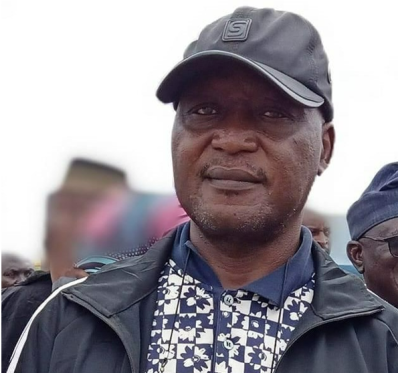Christian journalist arrested after reporting on violence in Nigeria has case delayed again

The case of a Nigerian journalist arrested for reporting on the government's inability to prevent attacks against Christians has been delayed again as the judge didn't appear for the scheduled trial.
Luka Binniyat, a journalist whose work has been published by the anti-communist Epoch Times, was scheduled to appear in court last week for charges of "cyberstalking" and aiding and abetting the offenses of cybercrime brought against him last year. However, the U.S.-based persecution watchdog International Christian Concern reports that the judge failed to attend the trial.
Binniyat, a Catholic arrested last November, has denied the charges.
The Epoch Times' Africa Desk Editor Doug Burton attributed the journalist's arrest to an Oct. 29 article he wrote titled: "In Nigeria, Police Decry Massacres as 'Wicked' But Make No Arrests."
The article was part of the newspaper's coverage of the deadly persecution of mostly-Christian farming communities in the West African country that human rights advocates say has escalated to near "genocidal levels" in recent years as thousands have been killed.
Critics believe the case against Binniyat is a political move against journalists on the part of Nigerian officials in Southern Kaduna, ICC commented.
Predominantly Christian farming communities in Nigeria's Middle Belt, which includes northern Kaduna state, are regularly targeted and attacked by radicalized ethnic Fulani militants, ICC said in an earlier statement. Thousands have been killed in the last few years.
The Nigerian government has refuted claims that violence in the Middle Belt states is based on religion and states that the violence is part of decades-old farmer-herder clashes.
In his article, Binniyat pushed back on Kaduna's Commissioner of Internal Security and Home Affairs Samuel Aruwan's characterization of an attack on Christian farmers in the state as a "clash."
Earlier this month, the U.S. Commission on International Religious Freedom warned that religious freedom is deteriorating in Nigeria because of rising violence by nonstate actors and "poor governance."
"In recent years, nonstate actor violence has increased in most parts of Nigeria, and this violence has yielded devastating humanitarian and human rights consequences, including but not limited to violence based on religion and other violations of Nigerians' rights to freedom of religion or belief," USCIRF said in a report on violence in Africa's most populous country.
USCIRF recommended that the State Department designate Nigeria as a country of particular concern for "engaging in and tolerating systematic, ongoing, and egregious violations of religious freedom."
Countries subject to the State Department's "CPC" designation face negative consequences, including the possibility of crippling sanctions.
However, in the 14 years that USCIRF has recommended Nigeria be designated as a CPC, the State Department has only accepted its recommendation once, in 2020, under the Trump administration.
Nigeria was taken off the CPC list by the Biden administration last year, drawing criticism from human rights groups and USCIRF.






















